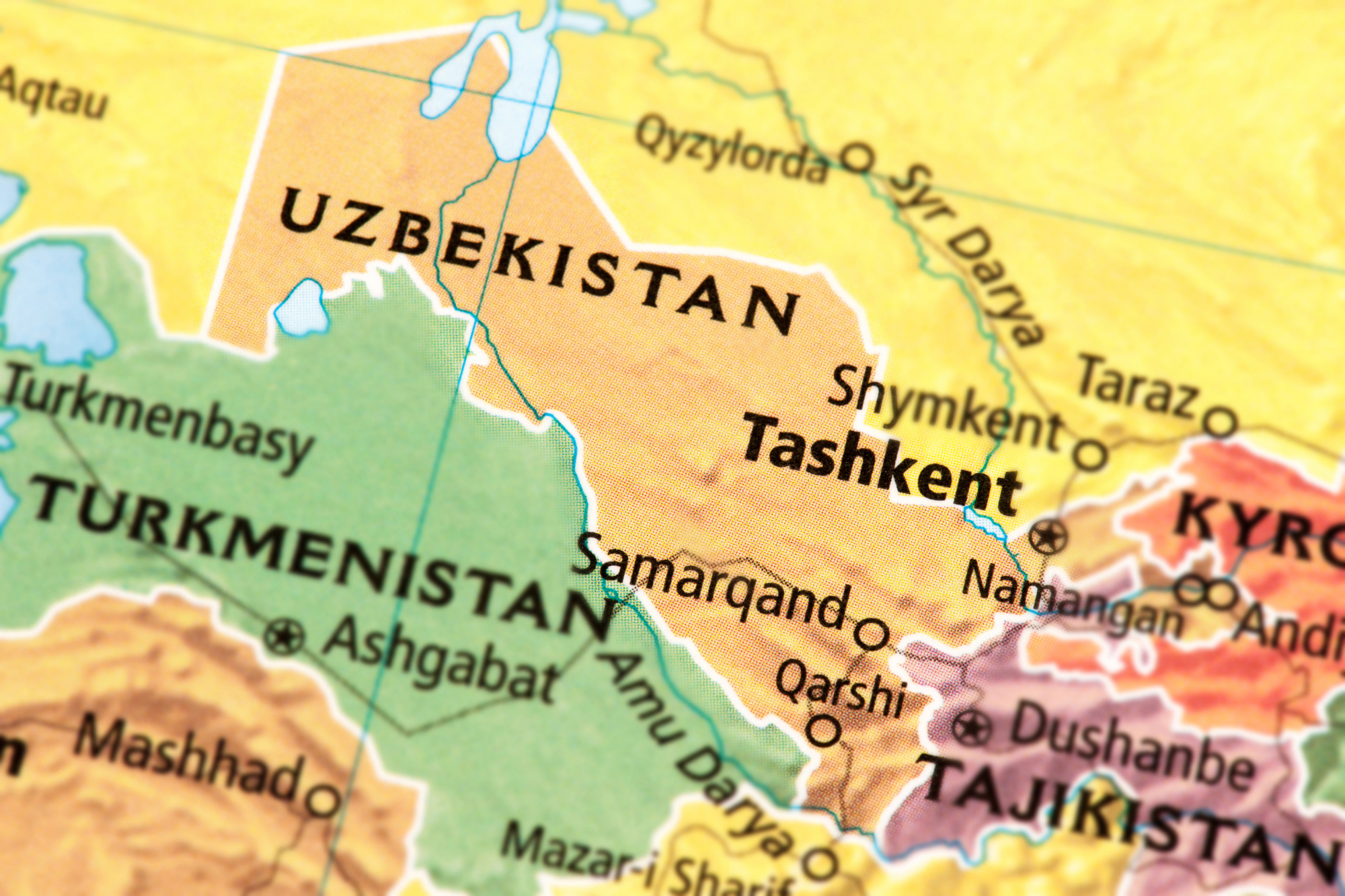
TASHKENT, Uzbekistan (BP) — Two new requirements for religious organizations seeking government recognition in Uzbekistan are said to evidence the Central Asian nation’s continued restriction of religious liberty.
Comprising five former Soviet republics, Central Asia includes Uzbekistan and two other countries on the U.S. State Department’s list of countries of particular concern (CPCs) for religious liberty violations: Tajikistan and Turkmenistan. Another Central Asian nation, Kazakhstan, has been recommended for inclusion on the State Department’s religious liberty watch list by the U.S. Commission on International Religious Freedom (USCIRF).
In Uzbekistan, Government Decree 409 was adopted May 31, requiring religious communities to obtain government approval of their religious leaders’ education. The decree also requires religious educational institutions to obtain government approval of their leaders’ religious educations, according to Forum 18, a news service that reports on religious liberty violations in Central Asia and the surrounding regions.
The requirements for reporting religious leaders’ education are “at present impossible” to fulfill for some organizations, Forum 18 reported, because there is no official government office to recognize foreign religious education.
According to the State Department’s International Religious Freedom Report for 2017, Uzbek law “requires religious groups to register with the government and declares religious activities of unregistered groups to be illegal.” Unauthorized instances of evangelism, distributing religious literature and possessing religious materials — including the Bible — have resulted in “fines, corrective labor and prison sentences.”
Some 83 percent of Uzbekistan’s 32 million people have Sunni Muslim backgrounds, Forum 18 reported, and “followers of all religions and beliefs — with no exceptions — face freedom of religion or belief violations” as “part of the regime’s intentional systemic policy to control every aspect of society.”
According to USCIRF’s 2018 Annual Report, some religious liberty advocates were optimistic last year that newly elected President Shavkat Mirziyoyev would relax “the repression of religious freedom.” But despite some “changes in religious policies” — like easing some “restrictions on the practice of Islam” — the government “has not yet embarked on a major deviation from its overall policy of severe restriction of religious freedom, premised on the threat posed by Islamic extremism.”
Among religious liberty violations alleged by Forum 18 in Uzbekistan over the past year:
— One member of a Baptist church in the city of Karshi was jailed and three others fined for meeting for worship without permission.
— A Baptist couple’s 8-year-old son in the Navoi region was taken from school without his parents’ permission and questioned by government officials.
— A Jehovah’s Witness in Urgench was tortured after the religious assembly he attended attempted to obtain state recognition.
Similar persecution allegedly persists in Central Asia’s other two CPCs.
Tajikistan, according to USCIRF, continued in 2017 “to suppress displays of public religiosity as well as persecute minority communities. Persons sentenced to prison include alleged Salafists [members of a branch within Sunni Islam], a Jehovah’s Witness conscientious objector, and a Protestant pastor.”
Turkmenistan “is widely considered the most closed of the former Soviet states,” USCIRF stated, “and this is reflected in the government’s severe repression of religious freedom.” Many individuals convicted of religious crimes are presumed to be sent to the notorious desert prison Ovadan-Depe, “where prisoners regularly die from torture and starvation.”
USCIRF recommended Kazakhstan for the government’s religious liberty watch list “amid a general crackdown on dissent and nonconformity,” including 20 people sentenced to prison in 2017 “for the peaceful expression of religious beliefs.”
Central Asia’s other nation, Kyrgyzstan, is not on the State Department’s official list of the world’s worst religious liberty offenders. But the 2017 International Religious Freedom Report said authorities there have “imposed restrictions and heightened scrutiny on so-called ‘nontraditional’ religious groups” despite a constitutional provision of religious freedom.














